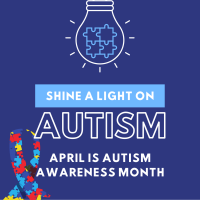
Autism spectrum disorder (ASD) can include a wide variety of symptoms and behaviors, which is why it is referred to as a spectrum. It is a condition related to brain development and it impacts how a person perceives and socializes with others. It also can include limited and repetitive patterns of behavior. Children with ASD do not follow the typical patterns of child development. They often have language problems, difficulty with social interactions, unusual behaviors, and limited interests in play.
In 2020, the CDC reported that approximately 1 in 54 children have been diagnosed with Autism Spectrum Disorder. Boys are four times more likely to be diagnosed than girls. According to Autism Speaks, most children who are on the autism spectrum will be diagnosed by the time they are 4 years old, but it can be detected as early as 2 years. Autism affects all ethnic and socioeconomic groups; however, minority groups tend to be diagnosed later and less often.
What Causes Autism Spectrum Disorder?
There is no one known single cause of ASD. Genetics are involved in autism and much research is being done to understand how genetic disorders or mutations that have occurred affect the brain of a child with autism. Researchers are still looking into environmental factors such as viral infections, medication or other factors and what their role might have in ASD. There are some who believe childhood vaccinations have played a part in the rise of autism, however, it is important to note that this has been debunked in the medical community. Immunizations are safe and an important part of your child’s healthcare.
How Do You Diagnose Autism?
There is no medical detection, or test, for autism, screening but your pediatrician is your first resource to discuss any questions or concerns about your child.
Paul Ahn, MD, GRMDC Pediatrician says, “Every well child visit includes a portion of the visit with developmental screening tools to communicate with our families if there are any learning or developmental concerns. At around 18-24 months, we aim to screen our patients at their well child visits with an MCHAT screening tool as a quick screen for autistic spectrum.”
Signs of autism spectrum disorder often appear early in development when there are obvious delays in language skills and social interactions. Your doctor may recommend developmental tests to identify if your child has delays in cognitive, language and social skills, if your child:
-
Doesn't respond with a smile or happy expression by 6 months
-
Doesn't mimic sounds or facial expressions by 9 months
-
Doesn't babble or coo by 12 months
-
Doesn't gesture — such as point or wave — by 14 months
-
Doesn't say single words by 16 months
-
Doesn't play "make-believe" or pretend by 18 months
-
Doesn't say two-word phrases by 24 months
-
Loses language skills or social skills at any age
If your child has been diagnosed with Autism, you are likely to have many questions and concerns. GRMDC’s practitioners are well versed in ASD and we also partner with Boston Medical Center as a referral site for Developmental Pediatrics to test our patients for concerns about ASD.
Find Support
If your child is diagnosed with ASD, know that you are not alone. GRMDC and BMC both offer resources and support and there are many groups such as Autism Speaks, and groups within our community that offer information and support.
